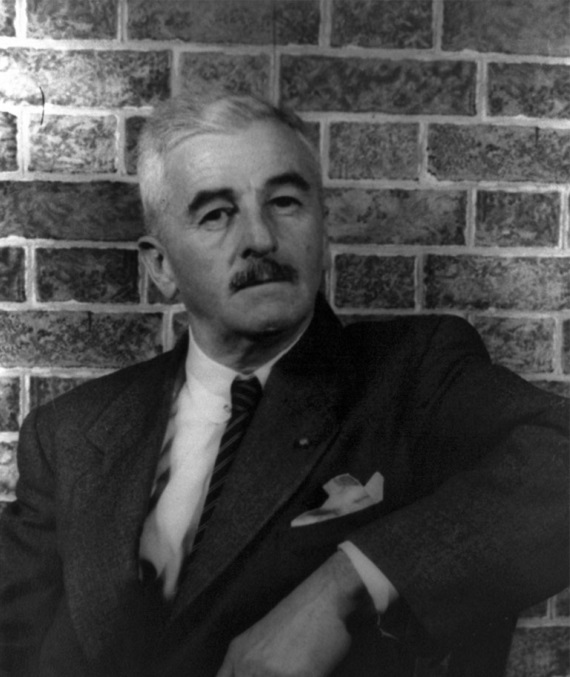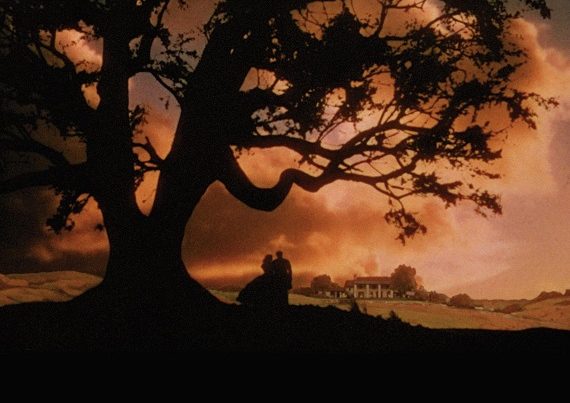In honor of William Faulkner’s birthday (Sept 25), Clyde Wilson discusses Faulkner as a conservative. This essay first appeared in Clyde Wilson and Brion McClanahan, Forgotten Conservatives in American History
William Faulkner is of course a giant of 20th century literature. Study of his works of fiction is an immense and world-wide scholarly industry. Most of the vast published commentary is academic effluvia without much usefulness in understanding who Faulkner was and what he really thought about the 20th century America that he lived in. Conventionally, Faulkner has been described as a Southern liberal. To the liberal academic, it is inconceivable that so great a mind could be anything else. But then there are a few examples of liberal “scholars” whose work consists of a breathless discovery that Faulkner, alas, was not a liberal, and therefore not as smart or as noble in character as themselves.
We should be clear that the essential and important thing about a great artist is his vision, not his opinions. A great artist sees in ways far more fundamentally true and meaningful than mere opinion. Faulkner’s political and social views are secondary to his vision. In twelve major works, more than half of them masterpieces, he has presented a panorama of American experience in the 19th and 20th centuries in relation to nature, God, and history that will last as long as Western Civilization. Such an artist is inspired, and inspiration in its root meaning is something that comes from the gods. Even so, to understand Faulkner’s opinions as a man when he is speaking for himself and not though a character is one clue to understanding his works.
Fortunately we have the wisdom of several great scholars (something as rare as a great writer) to guide us in understanding what Faulkner is about, where he is coming from, as they say. Most notably Cleanth Brooks, author of William Faulkner: Yoknapatawpha Country, William Faulkner: Toward Yoknapatawpha and Beyond, and On the Prejudices, Predilections, and Firm Beliefs of William Faulkner; and James B. Meriwether, editor of William Faulkner: Essays, Speeches, and Public Letters.
Faulkner’s novel The Reivers begins with the words “Grandfather said . . .,” followed by a discussion of a gentleman’s responsibilities and how he should behave. In most any modern novel, as M.E. Bradford points out, such a discussion would be ironic, the object of ridicule. Faulkner is capable of some of the most uproarious humor in modern fiction, and indeed what follows in The Reivers is a hilarious account of what can happen when Grandfather’s instruction is not heeded. However the advice itself is not a joke.
In Go Down, Moses the character Ike McCaslin has been usually taken to be an admirable figure. He repudiates his family inheritance because it is tainted with slavery and miscegenation, and makes his living with his hands. A model liberal devoted to justice and repudiation of social evil. But look more closely. One sees that McCaslin is a barren man, driven by an overly fastidious and abstract conception of good. He has no children; his wife draws no comfort from him. He is everybody’s uncle and loved by nobody. The real hero is the flawed and worldly Cass Edmonds, who accepts who he is, takes hold of the tarnished family bequest, and does his best to carry out responsibilities to his people, black and white. This is what Faulkner’s so often misunderstood vision of life is telling us.
This was not written by an alienated, self-appointed superior “artist” criticizing his society from outside. This is the work of a man who belongs, who is loyal to his people although he understands that, like all us human creatures, they struggle constantly and not always successfully with sin.
It is clear here and elsewhere that Faulkner admires and believes in honor, or chivalry, if you will. He shows the evil and futility of chivalric pride and violence, but at the same time provides us sterling portraits of courage and honor informed by Christian virtues and in service to community. The most conspicuous example is perhaps at the end of The Unvanquished, when Bayard Sartoris faces down his father’s killer unarmed in order to stop the cycle of violence spawned by the war and “Reconstruction.” Then there is Gavin Stevens who, through several novels and stories devotes himself quietly (and quixotically) to the people of Yonapatawpha, and at least once is even referred to as a “knight.”
There are plenty of bad people in Faulkner, though they are usually tragic rather than villainous. But ordinary folk often provide us with unexpected and quiet examples of honor, courage and sacrifice. Grandmother Rosa Millard finds a way to trick the Yankees and feed the war-ravaged people of Yonapatawpha even though it is dangerous and requires sacrifice of lifelong honesty. A convict, temporarily released in order to help in the great flood, finds a new life but returns to finish his sentence so that his new life can begin clean. In “Two Soldiers” a farm boy so poor he has to listen to the radio outside a neighbor’s window leaves for Memphis to enlist the day after Pearl Harbor. In Intruder in the Dust, an old lady and a boy face down the community to save a wrongly accused black man—even though the man is cantankerous and ungrateful.
It is worth remembering that before the cultural catastrophe of The Sixties, Faulkner and other significant writers actually reached millions of middle-class households every week in The Saturday Evening Post.
Faulkner in his own life was an exemplar of honor in several respects. “Faulkner’s great courage and patience and unceasing productivity are inspiring,” writes George Garrett. “The absence of recognition and reward did not silence him, nor did his belated triumph.” And through a lifetime of reaching new horizons in his craft, Faulkner struggled to make a living and fulfill his private responsibilities. His Nobel Prize Address, one of the noblest short speeches of the 20th century, is an exercise of chivalry. To a generation rising to maturity in the early 1950s under a nuclear cloud, for the first time in history, he offers a sober Christian hope and reaffirms the essential meaningful continuity of man’s life on this planet.
Cleanth Brooks convinces us that Faulkner was no alienated liberal exposer of an evil society by demonstrating beyond doubt that the central character of all his work is his “community,” the “little postage-stamp of land” in Mississippi that he has rendered in fiction as the town of Jefferson and the county of Yoknapatawpha. “The past is not dead,” says the Mississippi storyteller, “It is not even past.” This is Edmund Burke’s sentiment that true community exists in the relationship between the dead, the living, and the unborn. Faulkner is no alienated critic, he is that archaic thing, a bard who records and celebrates the life of his people. What could honor continuity better than the lady who must make the hazardous journey from Carolina to frontier Mississippi in the early 19th century who takes with her the stained glass from the doorway and rose cuttings from the old home?
Faulkner’s community is a rich panorama embracing the generations, the rich and poor, good and bad, the red, white and black living out their times in the eternal struggle that he describes in the Nobel speech. Life is full of uncertainty and pain, but man, made in the image of God, “will not only endure, but prevail.”
It is little known, but William Faulkner has in fact left us with a clear guide to his opinions. When he passed away he was working on a non-fiction book to be called “The American Dream—What Happened To It?” Enough survives to show what was intended. In 1952, the year after the Nobel Address, Faulkner was invited to speak to a meeting of farmers at Cleveland, Mississippi. He chose as his topic the Declaration of Independence.
The noble American principle of a right to life, liberty, and the pursuit of happiness, Faulkner said, had become in postwar American society little more than a short-hand for material security. The “American Dream” had become two cars, a swimming pool, and a Caribbean vacation. That is not what the pursuit of happiness meant to the early Americans—people who made the dangerous ocean voyage to an unknown continent, repeatedly penetrated the wilderness, and fought the world’s greatest power for independence. Such people “did not mean,” said Faulkner, “just to chase happiness, but to work for it.” And by happiness they meant “not just pleasure, idleness, but peace, dignity, independence, and self-respect; that man’s inalienable right was, the peace and freedom in which, by his own efforts and sweat, he could gain dignity and independence, owing nothing to any man.”
Our forefathers knew what liberty was, because they were asserting it in a world in which most of mankind had long been without it: “We knew it once, had it once . . . Only something happened to us. . .” We no longer “believed in liberty and freedom and independence, as the old fathers in the old strong, dangerous times had meant it.”
In Faulkner’s created world happiness is never material. The pursuit of wealth and status again and again leads to a warped life—as with Jason Compson in The Sound and the Fury and Thomas Sutpen in Absalom, Absolam. And most vividly in the case of the soulless excuse for a human being Flem Snopes, who may be taken as a highlighted characterization of a certain type of American. Then there is the farmer whose world is shattered when he is told that the government will pay him not to grow cotton!
Whether he fully realized it or not, Faulkner in his world-class art and in his opinions was drawing from the well of traditional Southern impulses. He even calls down the old truth that the price of liberty is eternal vigilance, that liberty is not a gift but only for those who have the character to get and keep it, “Which is exactly what we did, in those old days.” John Taylor of Caroline, John C. Calhoun, and Robert E. Lee would know at once exactly what he meant. William Faulkner was not only a conservative Southerner, he believed that it was not such bad thing to be.







